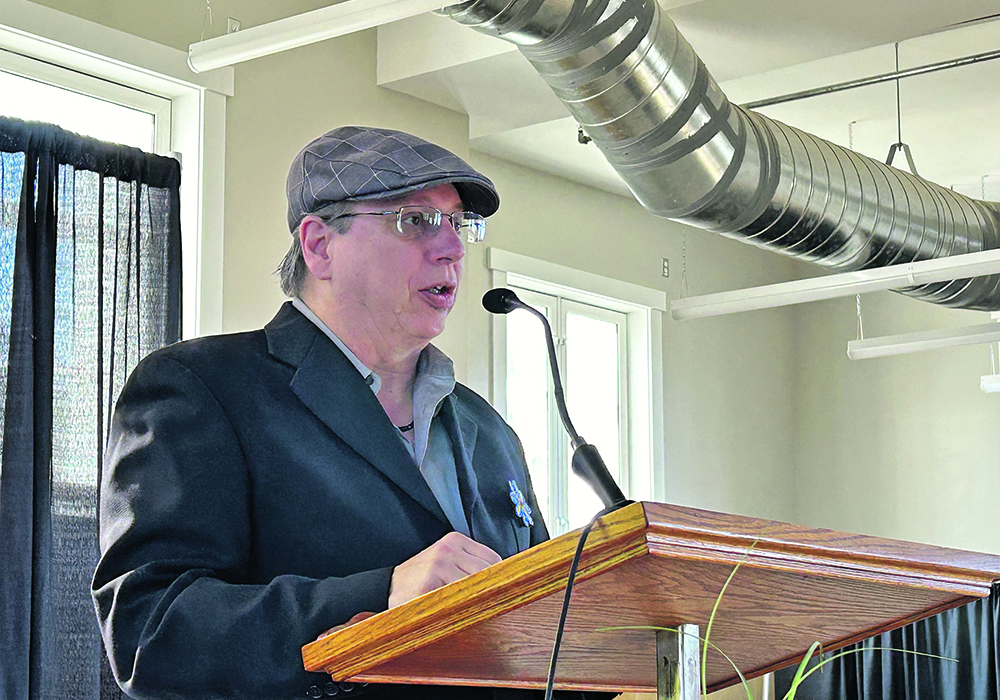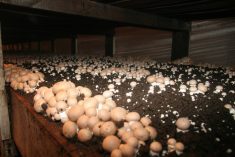Indigenous group has an important historical connection to Prairie farming, but opportunities remain elusive today
This is the last story in a series looking into the pools of human talent within Canada’s population that could help fill the growing labour shortage that is crippling many farms.
David Beaudin has a joke that combines his two responsibilities in the Manitoba Metis Federation: “Our kids can be involved in any work they want — as long as it’s agriculture.”
Other stories in this series:
- African-Canadians seen as untapped ag resource
- Potential Indigenous labour force should not be ignored
- South Asians want ag jobs, but lack opportunity
As the federation’s minister for agriculture and associate education minister, he wants to use the education system to connect agriculture and careers for Metis youth.
Read Also

Canadian-bred cow wins World Dairy Expo Holstein show
A cow bred in Saskatchewan, Lovhill Sidekick Kandy Cane, is the Grand Champion Holstein at the 2025 World Dairy Expo.
“How do we get more programs for youths to get them involved in the sector,” pondered Beaudin in an interview on Truth and Reconciliation Day.
“It’s so important to get our youth into the sector.”
Beaudin is an active agricultural proponent. He often represents the MMF at events such as Manitoba Ag Days and sees agriculture providing a natural fit for Metis people, who have centuries of experience in their communities with various forms of farming, from pre-settlement provisioning for themselves and European traders, through all the various forms of agriculture that have occurred since the settlement era, to modern food production.
However, the opportunities in agriculture are often hard to see when young people receive little exposure through the school system. Beaudin hopes to fix that, from kindergarten to trades training to university. Agriculture’s myriad of opportunities need to be known.
That’s especially true, he thinks, because everybody else is fighting for young workers today.
“There’s a lot of pressure from the trades and business and health care,” said Beaudin.
“Everybody’s looking for the Red River Metis to fill the gaps.”
The MMF is a significant force in Manitoba with strong connections and relations with municipal, provincial and federal governments.
However, the Metis population is spread across Canada, and the Red River Metis spread across Western Canada early during the settlement era and before. That chops up the opportunities in agriculture to some degree because of the provincial nature of Canada.
Within Manitoba, Metis can access some programs, opportunities and institutions that aren’t as open to them in Saskatchewan or Alberta, where many fellow Metis also live.
Most farming in the West is in Saskatchewan and Alberta, yet the Manitoba Metis find themselves struggling to get into the agriculture economy outside provincial borders. Especially with funding for education, provincial borders matter.
“They’re kind of trapped in Manitoba,” said Beaudin.
For youth heading toward a university education, Beaudin hopes agriculture can be seen as a place where the best and brightest can fit right in using cutting-edge technology.
“Through a university degree they can move into agri-science.”
For those taking a technical education, the same holds true. Many trades flourish within agriculture.
For those who might not have finished their Grade 12 but are ambitious about developing technical skills, Beaudin hopes to create training programs.
“I think we can have apprenticeship-style learning programs for farm hands.”
He envisions having a three-year program that would help workers involved in agriculture develop their skills to move up the skills ladder within a farm.
Unfortunately for the Metis, funding is always a challenge.
Metis history is rife with struggles for recognition and acknowledgement of the role they have and could play in Canadian society.
There are few of the funding programs and institutions that exist for other Indigenous populations, so those with ideas find themselves chasing government and private money.
Beaudin hopes to bring the Manitoba government on side with the apprenticeship program to get more interprovincial co-operation for Metis youth and to find private and community partnerships that can help open the door for Metis youth to move through to the agriculture industry.
At one time, the Metis were the main agriculturalists on the prairie. That’s no longer true. However, Beaudin said Metis people can help fill the labour void in agriculture and reclaim some of the historical role they played in producing sustenance on the vast plains of Western Canada.
















